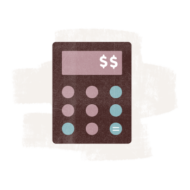If you’re looking for a real estate loan for your business, there are several different options available. As you shop around, take the time to consider how SBA real estate loans can help you achieve your goal. SBA real estate loans are great options for those not wanting a small business loan. You will need to understand how to Prepare Your Application for the SBA Paycheck Protection Program.
There are two different SBA real estate loans that you can apply for: SBA CDC/504 Loans and SBA 7a Loans. Here’s what you need to know about each option and how to determine if an SBA real estate loan is right for you.
The SBA CDC/504 Loan for real estate
SBA 504 Loans are designed to help small business owners finance the purchase of commercial real estate and machinery or equipment. The loan program is a partnership between a lender and a certified development company (CDC).
CDCs are nonprofit corporations that promote economic development in their communities through the loan program provided by the U.S. Small Business Administration (SBA). You can find a local CDC through the SBA’s website. The loan is typically structured as follows:
- 50% of the total project cost is financed through a private business lender
- 40% of the total project cost is financed by the CDC and is guaranteed by the SBA
- 10% of the total project cost is contributed by the small business
Depending on the circumstances, the small business may be required to provide up to 20% of the project costs and get only 80% in financing through the SBA 504 Loan program. You can use the funds from an SBA 504 Loan for certain fixed assets (including some soft costs which aren’t considered direct construction costs). More specifically:
- The purchase of existing buildings
- The purchase of land and land improvements, including grading, street improvements, utilities, parking lots and landscaping
- The construction of new facilities or modernizing, renovating or converting existing facilities
- The purchase of long-term machinery
- The refinancing of debt in connection with an expansion of the business through new or renovated facilities or equipment
There’s no maximum on the size of your project, but the SBA-guaranteed portion from the CDC maxes out at $5 million for most businesses. Repayment terms on an SBA 504 Loan include 10 and 20 years, and the interest rates are correlated with the current market rate for five- and 10-year U.S. Treasury issues. As of November 2019, rates are roughly 3.56% for 10-year loans and 3.92% for 20-year loans, though they may vary based on creditworthiness.
Related blog posts:
- This 0% Interest Small Business Loan Just Got Better
- Does it Make Sense to Fund My Business With Home Equity?
To qualify for an SBA 504 Loan, you’ll need to meet the eligibility criteria set by the lender, the SBA and the CDC, which may include but isn’t limited to:
- You run a for-profit company, which is an eligible business type — examples of ineligible businesses include real estate investment firms, casinos, pyramid sales companies and more
- Your business operates in the U.S.
- Your tangible net worth is less than $15 million, and your average net income is less than $5 million after taxes for the prior two years
- You can provide evidence of your ability to repay the debt based on projected operating cash flow
You’ll also need to provide all of the documentation required by the lender, SBA and CDC. Find out what’s required before you apply so you can accelerate the underwriting process. They’ll also check your FICO SBSS score, which you can keep tabs on with Nav’s Business Loan Builder plan.
The SBA 7a Loan for real estate
Unlike the SBA 504 Loan, the SBA 7a Loan offers more flexibility with how you can use your funds, but it does include real estate purchases. With a standard SBA 7a Loan, you can borrow up to $5 million through a private lender. The SBA will guarantee 85% of the loan amount on loans of up to $150,000 and 75% of loans greater than that.
Down payment requirements start at 10% with SBA 7a Loans, but some lenders may require more than that. Repayment terms go up to 25 years for real estate financing. For real estate-specific loans, a 25-year term applies only to the acquisition and improvement of land and buildings or the refinancing of debt incurred in their acquisition.
However, SBA 7a Loans can also be used to:
- Expand, acquire or start a business
- Refinance existing business debt not related to real estate
- Buy equipment
- Provide working capital
- Construct leasehold improvements
- Purchase inventory
Interest rates can vary based on the lender and your creditworthiness. In general, though, the average rate is close to 7%. The SBA also sets a maximum rate based on the current prime rate. You can also expect to pay a guaranty fee as high as 3.75% of the guaranteed portion of the loan.
To qualify for an SBA 7a Loan, you’ll need to meet the lender’s credit requirements, plus the following criteria from the SBA:
- Your business is a for-profit company
- You’re engaged in or propose to do business in the U.S. or its territories
- You have reasonable owner equity to invest
- You’ve tapped alternative financial resources, including personal assets, before seeking financial assistance
You also can’t run an eligible business, which includes real estate investment companies, firms involved in speculative activities, dealers of rare coins, pyramid sales plans and more.
SBA 504 Loan vs. SBA 7a Loan
Neither SBA loan program is inherently better than the other, so it’s important to know the terms and conditions of both to determine the right fit for you. Here’s a quick summary of the differences between the two loan programs for real estate-related financing:
| SBA 504 Loan | SBA 7a Loan | |
| Loan amounts | Up to $5 million (guaranteed portion) | Up to $5 million |
| Interest rate | Fixed
< 4% average |
Fixed or variable
7% average |
| Repayment terms | 10 or 20 years | Up to 25 years |
| Down payment requirement | 10% or more | 10% or more |
| Financial eligibility requirements | Tangible net worth cannot exceed $15 million, and average net income cannot exceed $5 million after taxes for the prior two years | N/A |
When the SBA 504 Loan is better
The maximum loan amount on an SBA 7a Loan is the same as the maximum guaranteed portion on an SBA 504 Loan. Remember, that makes up just 40% of the project costs, which means that you can fund up to $12.5 million with the help of a lender and a 10% contribution from your business. You could go even higher if you put more money down.
As a result, the SBA 504 Loan is a better option if your financing needs align with the program, and you need more money than an SBA 7a Loan can provide.
It’s also the better option if you qualify for both because interest rates are much lower. And while you won’t get as long of a repayment term, you’ll still save money on an SBA 504 Loan over an SBA 7a Loan.
When the SBA 7a Loan is better
You may want to consider an SBA 7a Loan if your financing needs are a little more general than what the SBA 504 Loan program allows. Carefully consider how all of your expenses would be categorized to make sure a general-purpose loan is a better fit, though, because the SBA 7a Loan will be more expensive.
This loan program is also a better fit if your tangible net worth or net income exceeds the maximums set by the SBA 504 Loan program. In this case, you won’t even get the choice between the two.
Finally, consider an SBA 7a Loan if your top priority is getting the longest repayment term possible. You’ll likely end up paying more for it, but it could allow you to spread out the cost of the loan over a longer period.
The bottom line
If you’re looking to make a real estate or machinery-related purchase or improvements to an existing property, or you want to refinance existing debt from such purchases for your business, SBA real estate loans may be your best options.
They typically charge lower interest rates than commercial real estate loans not guaranteed by the SBA, and they may also provide more flexible terms of your company. Before you apply, however, make sure you meet the eligibility requirements for SBA loans, so you don’t end up wasting your time waiting to get denied.
Also, as with any financing decision, it’s important to take the time to consider all of your options. Shop around and look at a few different funding options. You may need to apply with more than one lender to get the final terms.
Once you have this information, compare what you qualify for and choose the loan program that will give you the best terms for your situation and needs.
Whatever you do, make sure you have a plan in place to pay off the debt on time. This will not only help you establish a positive payment history for your business, but it will also help you protect the assets you’re purchasing with your financing.
Helpful Content Related to SBA Loans and COVID-19
- Paycheck Protection Loans are Intended to Keep Employees on the Payroll: What Does that Mean?
- COVID Disaster Loans Vs. Paycheck Protection Loans
- Avoid Small Business Lending Scams and Fraud Related to COVID-19
- What is the Economic Injury Disaster Loan Grant and What Does It Mean for Small Business?
This article was originally written on November 18, 2019 and updated on June 25, 2020.



The 504 loan also has a 25-year option too, fyi.